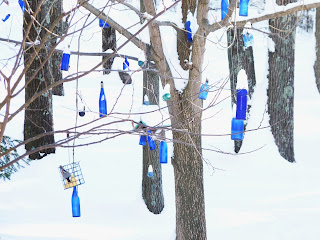But March can be a freakish month. As Nathaniel Hawthorne once wrote, “It is sad
that nature will play such tricks on us poor mortals, inviting us with sunny
smiles to confide in her, and then, when we are entirely within her power,
striking us to the very heart.” How many times have I seen the apple and peach
trees burst into bloom, and then see the withered blossoms after a night’s hard
frost? Gardening is not for those who give up easily; each year we stride out
with fresh hopes, the garden a blank sheet of paper waiting for our hoes and
shovels to turn it into this year’s story. I have to admit, each year I begin
my garden sure that the ending will be of the happily-ever-after variety, but
the fact is that most years the result is a mishmash of successes and failures.
For centuries writers have shared their love of gardening in
words. As early as 410 AD, Chinese
writer Hsieh Ling-Yin wrote, “I have banished all worldly care from my garden;
it is a clean and open spot.” There is something about gardening and writing
that go together. Perhaps it is the quiet nature of both occupations; both
require a certain comfortable silence, an aloneness in an otherwise busy world.
Gardening is contemplative; as we work we think about what we’re doing but also
about what we did in this garden in other years and what successes/failures
we’ve had. We think about those who once worked alongside us, children who have
grown and gone, parents who taught us what they knew. We examine plants, see
tiny veins in leaves, thin tendrils of reaching roots, the tidiness or
unruliness of exuberant plants. We search for bugs and pests and weakened
plants. We sit back on our haunches and breathe deep the odor of soil, of
green, of flowers and sweat.
Writing requires that same depth of quietude: we
write the words as they come into our minds, watch them take form and meaning
on the page. We remember other things we’ve written, characters we’ve created,
people with whom we shared our work; we prune and trim, cultivating images and
scenes. And when our minds are tired of word-wrestling, we can go out in our
gardens and lose ourselves in the simplicity of garden work.
An old Hebrew proverb says, “As is the garden, such is the
gardener.” My gardens, then, certainly reflect eclectic tendencies: herbs
jostle with roses, flowers with lettuce, a wild elderberry grows at the foot of
a maple and asparagus seedlings come up and grow where they will. I can’t say
there’s much order in the way the gardens are arranged as they seem to do it
themselves. I love the wild abandon of
it, the surprise of finding currants hiding under overhanging daylilies and
garlic bulbs under the oregano.
I leave you with this
thought from Francis Bacon: “God Almighty first planted a Garden. And indeed,
it is the purest of human pleasure. It is the greatest refreshment to the
spirits of Man.”
Copyright Susanna Holstein. All rights reserved. No Republication or Redistribution Allowed without attribution to Susanna Holstein.



You're right about gardening and writing. I can definitely see the analogy, and I enjoyed thinking about it.
ReplyDelete=)
Wonderful post!!! I've never thought of gardening in the context you shared-but it makes absolute perfect sense : )
ReplyDelete